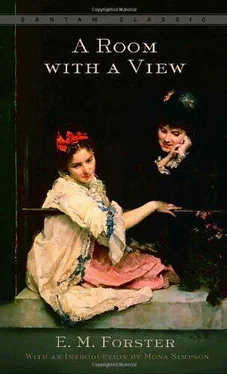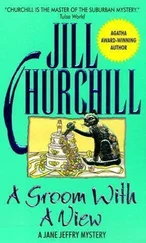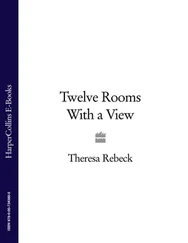Edward Forster - A Room with a View
Здесь есть возможность читать онлайн «Edward Forster - A Room with a View» весь текст электронной книги совершенно бесплатно (целиком полную версию без сокращений). В некоторых случаях можно слушать аудио, скачать через торрент в формате fb2 и присутствует краткое содержание. Жанр: Классическая проза, на английском языке. Описание произведения, (предисловие) а так же отзывы посетителей доступны на портале библиотеки ЛибКат.
- Название:A Room with a View
- Автор:
- Жанр:
- Год:неизвестен
- ISBN:нет данных
- Рейтинг книги:4 / 5. Голосов: 1
-
Избранное:Добавить в избранное
- Отзывы:
-
Ваша оценка:
- 80
- 1
- 2
- 3
- 4
- 5
A Room with a View: краткое содержание, описание и аннотация
Предлагаем к чтению аннотацию, описание, краткое содержание или предисловие (зависит от того, что написал сам автор книги «A Room with a View»). Если вы не нашли необходимую информацию о книге — напишите в комментариях, мы постараемся отыскать её.
A Room with a View — читать онлайн бесплатно полную книгу (весь текст) целиком
Ниже представлен текст книги, разбитый по страницам. Система сохранения места последней прочитанной страницы, позволяет с удобством читать онлайн бесплатно книгу «A Room with a View», без необходимости каждый раз заново искать на чём Вы остановились. Поставьте закладку, и сможете в любой момент перейти на страницу, на которой закончили чтение.
Интервал:
Закладка:
"Lucy! Lucy! What's that book? Who's been taking a book out of the shelf and leaving it about to spoil?"
"It's only the library book that Cecil's been reading."
"But pick it up, and don't stand idling there like a flamingo."
Lucy picked up the book and glanced at the title listlessly, Under a Loggia. She no longer read novels herself, devoting all her spare time to solid literature in the hope of catching Cecil up. It was dreadful how little she knew, and even when she thought she knew a thing, like the Italian painters, she found she had forgotten it. Only this morning she had confused Francesco Francia with Piero della Francesca, and Cecil had said, "What! you aren't forgetting your Italy already?" And this too had lent anxiety to her eyes when she saluted the dear view and the dear garden in the foreground, and above them, scarcely conceivable elsewhere, the dear sun.
"Lucy—have you a sixpence for Minnie and a shilling for yourself?"
She hastened in to her mother, who was rapidly working herself into a Sunday fluster.
"It's a special collection—I forget what for. I do beg, no vulgar clinking in the plate with halfpennies; see that Minnie has a nice bright sixpence. Where is the child? Minnie! That book's all warped. (Gracious, how plain you look!) Put it under the Atlas to press. Minnie!"
"Oh, Mrs. Honeychurch—" from the upper regions.
"Minnie, don't be late. Here comes the horse"—it was always the horse, never the carriage. "Where's Charlotte? Run up and hurry her. Why is she so long? She had nothing to do. She never brings anything but blouses. Poor Charlotte—How I do detest blouses! Minnie!"
Paganism is infectious—more infectious than diphtheria or piety—and the Rector's niece was taken to church protesting. As usual, she didn't see why. Why shouldn't she sit in the sun with the young men? The young men, who had now appeared, mocked her with ungenerous words. Mrs. Honeychurch defended orthodoxy, and in the midst of the confusion Miss Bartlett, dressed in the very height of the fashion, came strolling down the stairs.
"Dear Marian, I am very sorry, but I have no small change—nothing but sovereigns and half crowns. Could any one give me—"
"Yes, easily. Jump in. Gracious me, how smart you look! What a lovely frock! You put us all to shame."
"If I did not wear my best rags and tatters now, when should I wear them?" said Miss Bartlett reproachfully. She got into the victoria and placed herself with her back to the horse. The necessary roar ensued, and then they drove off.
"Good-bye! Be good!" called out Cecil.
Lucy bit her lip, for the tone was sneering. On the subject of "church and so on" they had had rather an unsatisfactory conversation. He had said that people ought to overhaul themselves, and she did not want to overhaul herself; she did not know it was done. Honest orthodoxy Cecil respected, but he always assumed that honesty is the result of a spiritual crisis; he could not imagine it as a natural birthright, that might grow heavenward like flowers. All that he said on this subject pained her, though he exuded tolerance from every pore; somehow the Emersons were different.
She saw the Emersons after church. There was a line of carriages down the road, and the Honeychurch vehicle happened to be opposite Cissie Villa. To save time, they walked over the green to it, and found father and son smoking in the garden.
"Introduce me," said her mother. "Unless the young man considers that he knows me already."
He probably did; but Lucy ignored the Sacred Lake and introduced them formally. Old Mr. Emerson claimed her with much warmth, and said how glad he was that she was going to be married. She said yes, she was glad too; and then, as Miss Bartlett and Minnie were lingering behind with Mr. Beebe, she turned the conversation to a less disturbing topic, and asked him how he liked his new house.
"Very much," he replied, but there was a note of offence in his voice; she had never known him offended before. He added: "We find, though, that the Miss Alans were coming, and that we have turned them out. Women mind such a thing. I am very much upset about it."
"I believe that there was some misunderstanding," said Mrs. Honeychurch uneasily.
"Our landlord was told that we should be a different type of person," said George, who seemed disposed to carry the matter further. "He thought we should be artistic. He is disappointed."
"And I wonder whether we ought to write to the Miss Alans and offer to give it up. What do you think?" He appealed to Lucy.
"Oh, stop now you have come," said Lucy lightly. She must avoid censuring Cecil. For it was on Cecil that the little episode turned, though his name was never mentioned.
"So George says. He says that the Miss Alans must go to the wall. Yet it does seem so unkind."
"There is only a certain amount of kindness in the world," said George, watching the sunlight flash on the panels of the passing carriages.
"Yes!" exclaimed Mrs. Honeychurch. "That's exactly what I say. Why all this twiddling and twaddling over two Miss Alans?"
"There is a certain amount of kindness, just as there is a certain amount of light," he continued in measured tones. "We cast a shadow on something wherever we stand, and it is no good moving from place to place to save things; because the shadow always follows. Choose a place where you won't do harm—yes, choose a place where you won't do very much harm, and stand in it for all you are worth, facing the sunshine."
"Oh, Mr. Emerson, I see you're clever!"
"Eh—?"
"I see you're going to be clever. I hope you didn't go behaving like that to poor Freddy."
George's eyes laughed, and Lucy suspected that he and her mother would get on rather well.
"No, I didn't," he said. "He behaved that way to me. It is his philosophy. Only he starts life with it; and I have tried the Note of Interrogation first."
"What DO you mean? No, never mind what you mean. Don't explain. He looks forward to seeing you this afternoon. Do you play tennis? Do you mind tennis on Sunday—?"
"George mind tennis on Sunday! George, after his education, distinguish between Sunday—"
"Very well, George doesn't mind tennis on Sunday. No more do I. That's settled. Mr. Emerson, if you could come with your son we should be so pleased."
He thanked her, but the walk sounded rather far; he could only potter about in these days.
She turned to George: "And then he wants to give up his house to the Miss Alans."
"I know," said George, and put his arm round his father's neck. The kindness that Mr. Beebe and Lucy had always known to exist in him came out suddenly, like sunlight touching a vast landscape—a touch of the morning sun? She remembered that in all his perversities he had never spoken against affection.
Miss Bartlett approached.
"You know our cousin, Miss Bartlett," said Mrs. Honeychurch pleasantly. "You met her with my daughter in Florence."
"Yes, indeed!" said the old man, and made as if he would come out of the garden to meet the lady. Miss Bartlett promptly got into the victoria. Thus entrenched, she emitted a formal bow. It was the pension Bertolini again, the dining-table with the decanters of water and wine. It was the old, old battle of the room with the view.
George did not respond to the bow. Like any boy, he blushed and was ashamed; he knew that the chaperon remembered. He said: "I—I'll come up to tennis if I can manage it," and went into the house. Perhaps anything that he did would have pleased Lucy, but his awkwardness went straight to her heart; men were not gods after all, but as human and as clumsy as girls; even men might suffer from unexplained desires, and need help. To one of her upbringing, and of her destination, the weakness of men was a truth unfamiliar, but she had surmised it at Florence, when George threw her photographs into the River Arno.
Читать дальшеИнтервал:
Закладка:
Похожие книги на «A Room with a View»
Представляем Вашему вниманию похожие книги на «A Room with a View» списком для выбора. Мы отобрали схожую по названию и смыслу литературу в надежде предоставить читателям больше вариантов отыскать новые, интересные, ещё непрочитанные произведения.
Обсуждение, отзывы о книге «A Room with a View» и просто собственные мнения читателей. Оставьте ваши комментарии, напишите, что Вы думаете о произведении, его смысле или главных героях. Укажите что конкретно понравилось, а что нет, и почему Вы так считаете.












